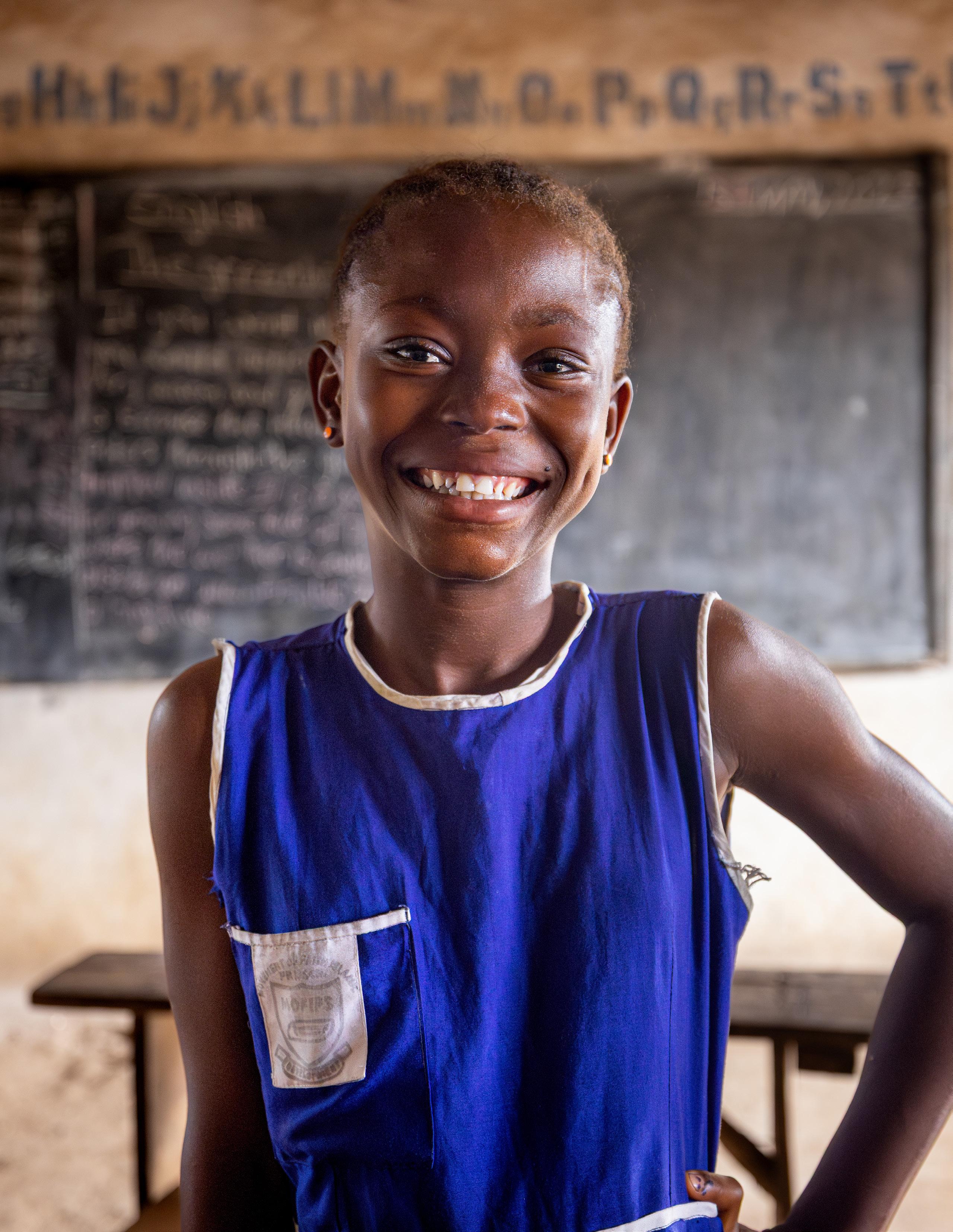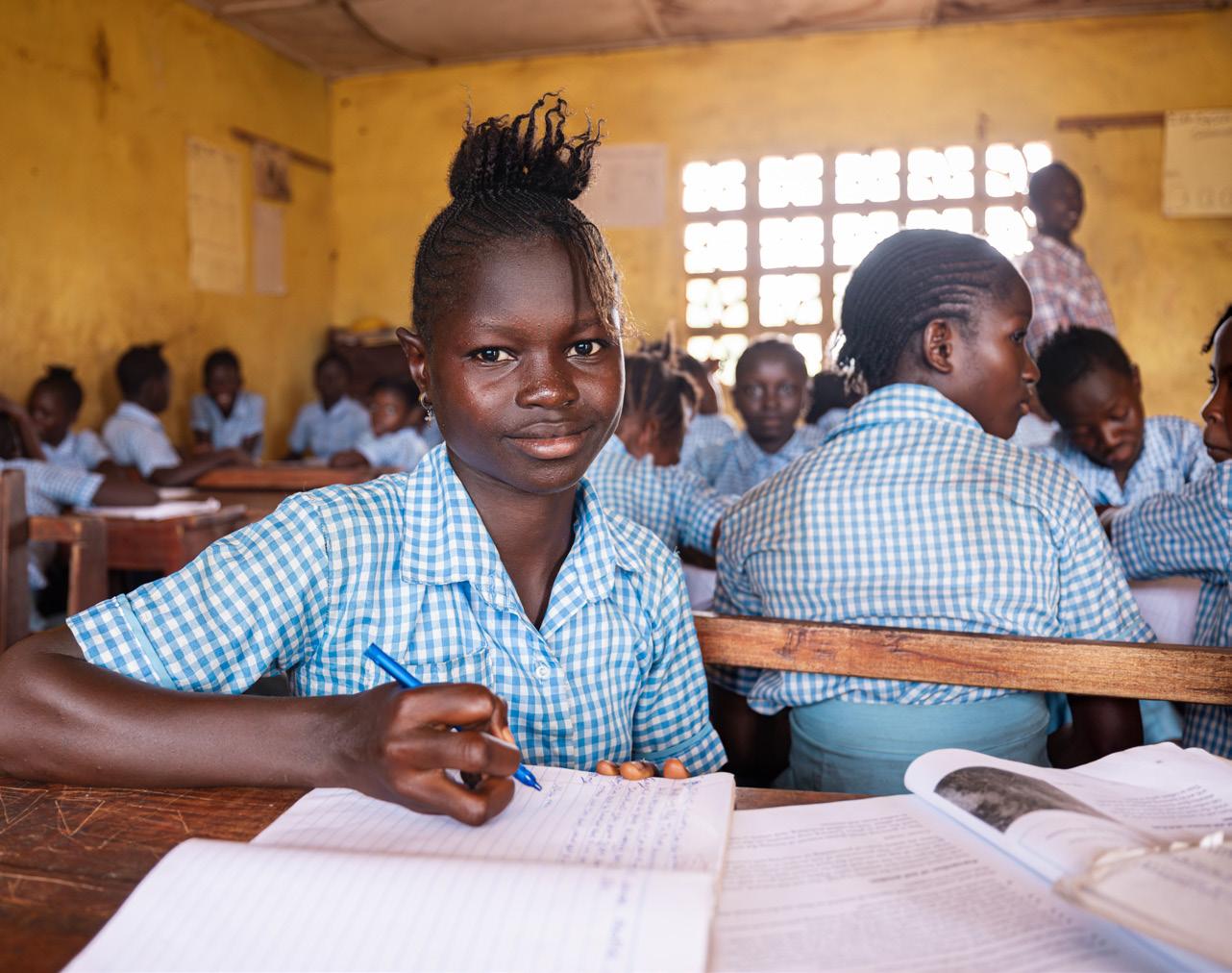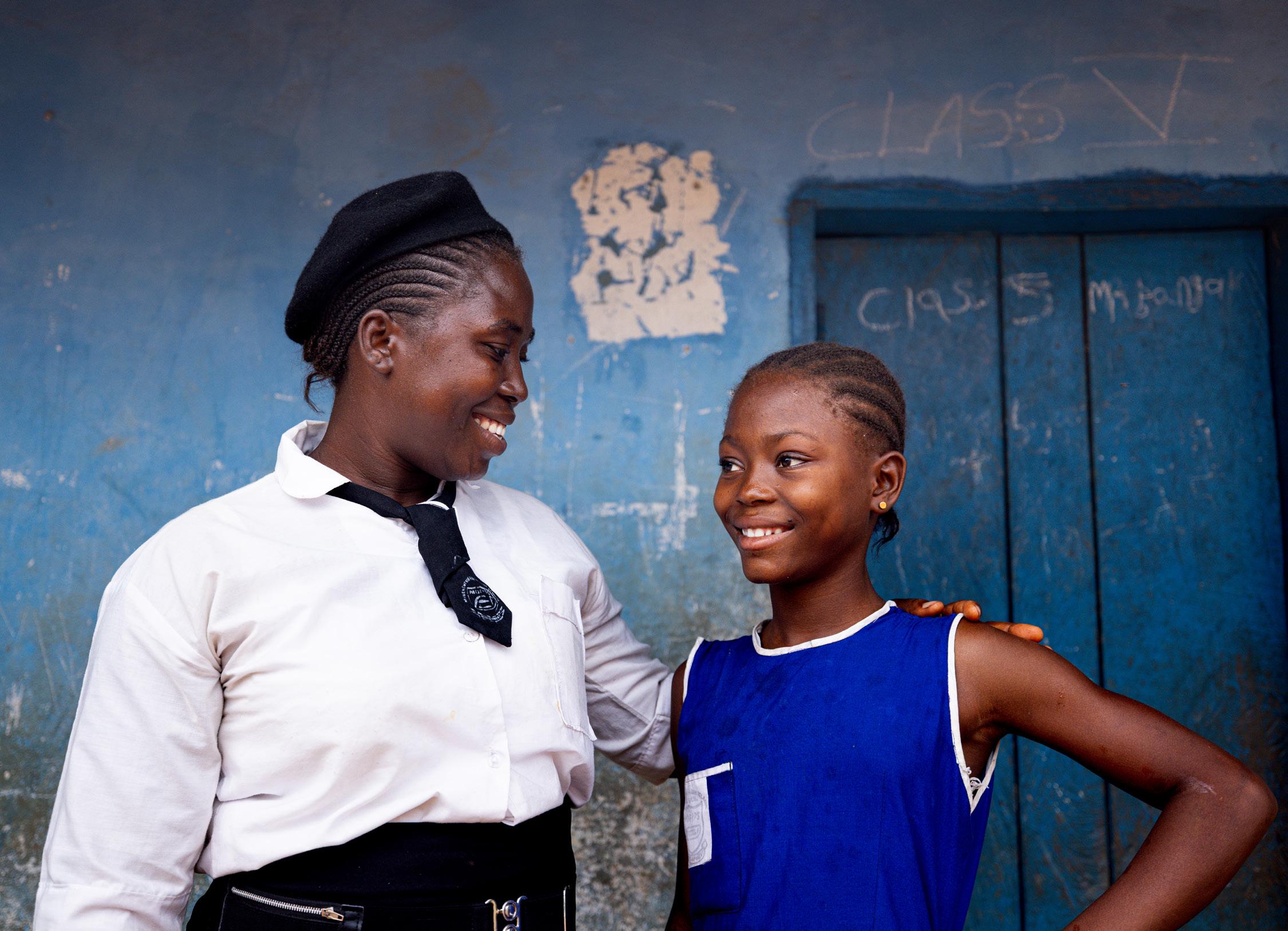






Year 1 Impact Report: Summer 2025



“Education is the most powerful weapon which you can use to change the world.” - Nelson Mandela
Poverty creates a paradox. Although education is the best pathway out of poverty, poverty is the #1 reason a girl misses out on an education.
That’s why, in Sierra Leone, 1 in 3 girls drops out of school by age 12. Then the cycle of hardship and missed opportunity continues.
This year, with your generous support, we launched a pilot program to help girls in Sierra Leone stay in school. Here’s how your compassion is breaking the cycle and changing the world, one student at a time.
01 03 05 02 04

Identify girls who are most vulnerable to dropping out
Primary schools use our Wi De Ya (“We are here”) software to track attendance and other key data points — a significant upgrade from the typical paper attendance records. This data helps school leaders identify girls who are missing school and at risk of dropping out.
Connect with caregivers
Our outreach coordinator meets with each girl and her family to discuss her goals and challenges and the expectations of the program. Then we share how to access support services and use the mobile money platform.
Provide monthly cash transfers
Each month, the family receives about $10 USD to help their girl stay in school.
(The first month is a double payment to help cover back-to-school expenses.)
Monitor attendance
The cash is conditional; to receive it, girls must attend school regularly.
Offer wraparound support
If a girl misses school frequently, our trusted local staff checks in with her. Then they refer her family to additional support services such as health care or disability support as needed.
Your generosity supported 853 girls to stay in primary school grades 4, 5 and 6 this year.
More than 300 girls graduated from primary school in June.
6x greater impact
Attendance is consistently higher for all age groups that received cash support. But for girls ages 14-16, the impact was 6 times greater than for those under 14.
Cash makes a difference. 87% of caregivers were “very satisfied” with the program’s positive impact on their children’s education and household well-being.
Your reach goes above and beyond the goal. 89% of caregivers said their other children benefited indirectly from the cash, whether through shared meals, school supplies or increased motivation to attend school.
Some of the most common uses of the cash were f ood, transportation to school, menstrual products, school supplies and uniforms.
A May 2025 survey of 27 participating students and 38 participating caregivers showed:
1 2 3
Ensure that each girl currently active in the pilot is re-enrolled and has access to services she needs
Expand to more districts and enroll another 1,000 girls in the pilot for Phase II
Over time, scale up to more schools and regions


ATTENDANCE IS UP!
Average increase is from 4 to 5 days per week


You’re changing the world, one girl at a time
“When I grow up and I’ve done my university, I want to be a pilot so that I can save my aunt, my uncle and my grandmom.”
Posseh Kamara, 15, who
is back in school after having to work during the day to earn money to buy food






After enduring immense hardship and years out of school, this young mother and her daughter are finally getting the education they believe will change their futures.
Every day that Aminata Kamara, 23, and her daughter Kadiatu spend in school is a miracle.
Nothing that happened in Aminata’s early life was her choice. She was just a child when an older man forced himself on her and she became pregnant. Despite her innocence, her parents disowned her. Her only option was to marry the man, who promised she would not go hungry.
Aminata was only 12 years old when she married and gave birth to Kadiatu.
Life was hard, and eventually Aminata fled to her parents’ house to get a break from her husband’s mistreatment. While

she was away, she trusted her husband’s family to care for 5-year-old Kadiatu. But soon, the child’s aunt began forcing her to haul sand from the river to sell. Kadiatu was not allowed to attend school, and she still has scars from being beaten when she complained about the hard labor.
Furious, Aminata fought for years before she finally got her daughter back. Her first order of business was enrolling Kadiatu in school.
“I want Kadiatu to learn so that after she finishes school, she can find a future,” Aminata explains.
In 2023, Aminata’s husband left her. Although it was a major financial blow, for the first time she was able to make a decision about her own future. She re-enrolled in school, having not set foot in the classroom since her daughter was born.
She says, “With this child I’ve given birth to, if I’m not educated, I won’t have any means to take care of her … If I go back to school, maybe God will help me, and I’ll get a small job that I can do so my child can survive.”
In addition to caring for Kadiatu, who is now 12, Aminata has been the primary caregiver for her 14- and 15-year-old siblings since their father died two years ago. The young family scrapes together a small income by selling water and firewood.
Your support through the cash transfer program reached Aminata just in time.
“The time when the money came, I didn’t have anything … nothing at all,” she says. Aminata uses the money for food
and occasionally for transportation, so they don’t have to walk such a long distance to school.
“The money helps us because now we have time to study,” she says. “A person who is hungry and doesn’t have enough food to eat doesn’t think clearly or focus well.”
In the evenings, she uses a small blackboard to teach her siblings and help Kadiatu with her homework. “When night comes,” she says, “I’m happy that we’re both holding onto our books.”
Aminata’s dream is to go to college so she can get a job and care for her family. Kadiatu, in turn, hopes to return the favor and provide for her mother one day.
Mother and daughter have been through extreme hardships, and they face many challenges ahead. But today they are a success story in progress — and your generosity is helping them write it.
“I want Kadiatu to learn so that after

- Aminata Kamara


Kadiatu’s favorite subjects are civics, math and social studies. She is also enjoying the warmth of friendship. “I am happy to come to school every day with my friend,” she says.

While cash assistance is highly effective at helping girls stay in school, they often face complex challenges that require more personalized care. That’s why your philanthropy also provides additional support services.
Here are a few of the partners who walk beside the girls every step of the way.

Some of these kids have never had people who showed them that they’re loved and cared for. Through this program ... someone cares.”
– Conrad Sackey, Minister of Education
Sierra Leone’s Minister of Education, Conrad Sackey, is a strong advocate for programs and policies that support the most vulnerable students — from the poorest to those with disabilities to girls who are pregnant — to ensure everyone has a chance to learn.

They see me as a sister, someone they can confide in ... I know what it feels like coming from a humble background. I know what it feels like having someone who’s like a mentor to you ... who gives you confidence that you can become someone tomorrow.”
– Mary Kamara, LWR Field Officer
Mary Kamara, a field officer for LWR, is a role model and champion for the girls. As a child, Mary went to school hungry and with holes in her shoes. She went on to earn a master’s degree and now dedicates her days to encouraging the girls the way others encouraged her.
We do not only focus on girls, we also talk to the boys because they’re there to also listen and know how to treat a woman or know how to treat their colleagues.”
– Jemilatu Koroma, Human Rights Officer

Human Rights Commission Sierra Leone educates citizens about their rights and coordinates with Rainbo Initiative to address and refer cases of abuse.

We follow up not only on their health, but also to make sure that we integrate them back in their society ... If we are not supporting them at home, it will be very, very difficult for them to come out of the abuse.”
– Bob Lamin, Communications & Advocacy Manager

Rainbo Initiative is a local NGO that provides free medical and psychosocial treatment for survivors of violence and abuse. (They leave off the ‘w’ to signify their work is not yet done.)
Incredible donors like you make this and other life-changing work possible. THANK YOU!